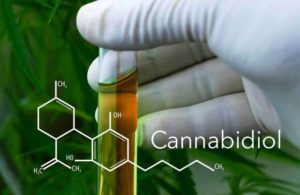
Photo credit: ww.healthworxcbd.com
Bangkok — The United Nations will in the next few weeks consider whether to downgrade the classification of cannabidiol – currently a narcotic under international law, Kasetsart University agronomy lecturer Vichien Keeratinijakal said yesterday.
Vichien said the UN was considering reclassification because cannabidiol – found both in hemp and marijuana – had been shown to have medical benefits without the intoxicating properties of other cannabinoids, such as psychotropic tetrahydrocannabinol (THC).
Some countries use cannabidiol in food-supplement products, he added.
Vichien met with International Narcotics Control Board member Viroj Sumyai last month to discuss Thailand’s move to legalize medical marijuana.
With restrictions possibly set to be lifted on cannabidiol, Government Pharmaceutical Organisation (GPO) chairman Sopon Mekthon suggested that the government encourage farmers to grow hemp as a source of cannabis-related remedies rather than marijuana.
He said Thailand-grown marijuana still had a rather high THC level and yielded a low amount of cannabidiol, meaning people were more likely to take it for psychotropic effects.
Sopon added that the government should legalize the growing of hemp, and study which strains to grow and where to cultivate in order to maximize the cannabidiol content.
Vichien, who has carried out GPO research into cannabis strains for medical purposes, said hemp (Cannnabis sativa L Subsp sativa) is judged different from marijuana (Cannabis sativa L Subsp indica (Lam) based on the amount of THC content.
Thailand requires that hemp must contain less than 1 percent THC, while the US requirement is for less than 0.3 percent and Europe’s is for below 0.2 percent.